Education Service Center Region 12 staff, educators, mental health advocates and care providers will join forces for the 18th Annual Teen Suicide Prevention Symposium from 9 a.m. to 4 p.m., Thursday, June 15 at 2101 W. Loop 340 in Waco.
ESC Region 12 and Partners Cedar Crest Residential Treatment Center and Daybreak Health want to gather educators, mental health providers and community members to learn and take action to help save the lives of challenged youth. The event will encourage awareness, intervention and prevention of teen suicide, regarded as the ‘preventable epidemic’ among Texas youth.
“This year’s event focuses on issues and trends impacting youth in many ways that educators, parents and care providers are seeing in our schools. From speakers on Pediatric Acute Onset Neuropsychiatric Syndrome (or PANS), to discussions about the US Surgeon General’s Advisory on Social Media and its Effect on Youth Mental Health, we are presenting cutting-edge topics that have a direct impact on our teens and their mental health,” said Jenipher Janek, a counseling services coordinator and lead for the Region 12 School Crisis Response Team.
The ESC Region 12 School Crisis Response Team includes ESC counselors and communication staff, school counselors and mental health advisors from the Heart of Texas Behavioral Health Network. The group coordinates grief response and provides logistical and communications support, and crisis recovery at no cost to area schools. In the last year, the team has responded to 18 calls to support educators and students affected by the loss of a student, employee or other crisis incident impacting school operations, including loss of life to suicide. Part of this work includes connecting schools to mental health providers and creating awareness about TCHATT, the Texas Child Health Access Through Telemedicine, which provides telemedicine or telehealth programs to school districts to help identify and assess the behavioral health needs of students and provide access to mental health services.
Event partners, expecting 80 attendees, hope to bring in even more educators, mental health providers, police officers, counselors and emergency services personnel. Advance registration ($45) is requested at: txr12.escworks.net/catalog/session.aspx?session_id=297715. Schools in the Counseling Services Membership may send staff at no additional fee. For more on ESC Region 12 Counseling Services and School Support, visit bit.ly/2023ESC12.
Additional event supporters include the Central Texas Regional Advisory Council, Heart of Texas Behavioral Health Network, Heart of Texas Regional Advisory Council, Heart of Texas Suicide Prevention Coalition and VOICE.
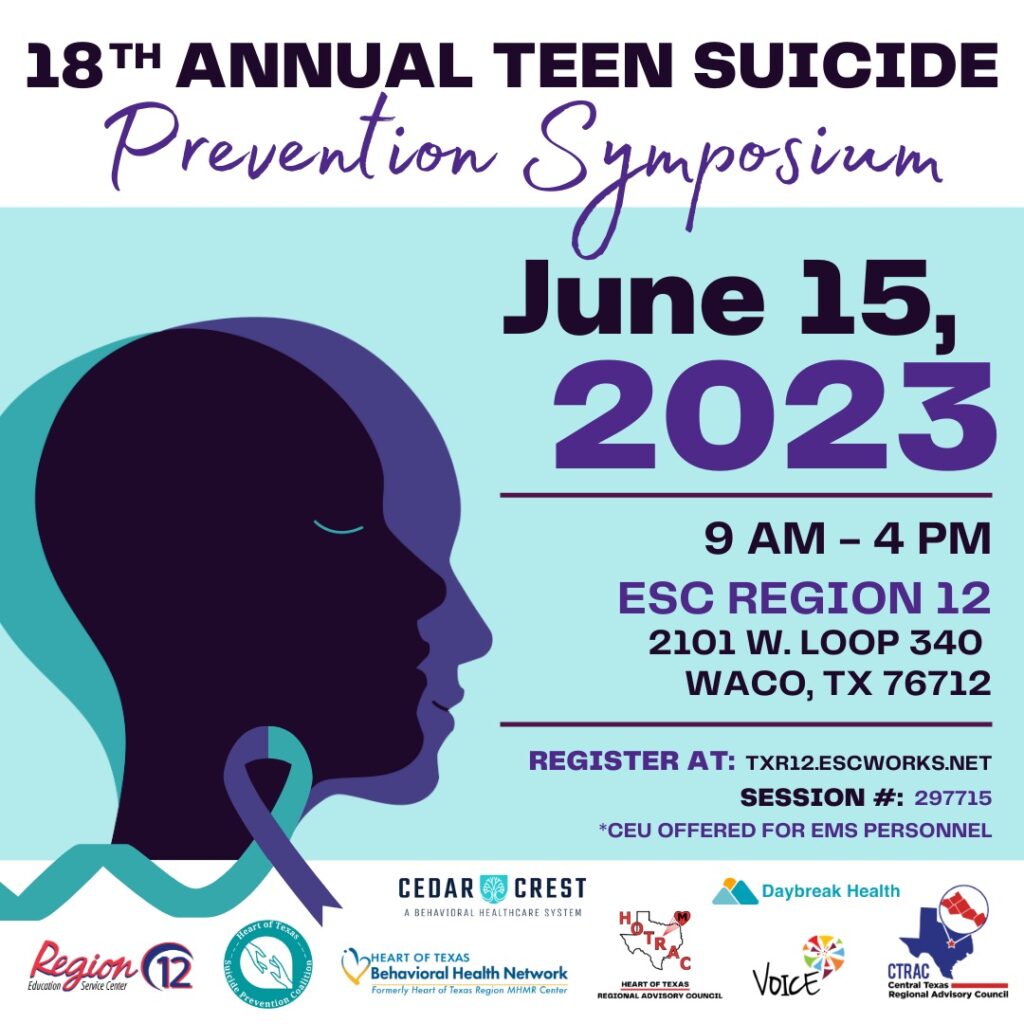
By Deneece Ferrales
One-quarter of Waco residents did not see a physician for any type of routine services in 2018, the last year for which such data is available. Data from the City Health Dashboard indicates many residents do not have a primary care physician or a “medical home.”
To help more Wacoans access care, Prosper Waco’s Access to Healthcare Working Group has planned an event, “Christmas on Memorial,” 4-7 p.m. Tuesday, Dec. 7, at the Family of Faith Worship Center, 4112 Memorial Dr. The event is a partnership between the church, McLennan County Indigent Health Care, and other organizations involved with the working group. (More details below.)
The lack of access to primary health care is particularly prevalent in certain Waco ZIP codes that include many lower income and Black and Hispanic residents. The problem not only puts residents at risk but also taxes the healthcare delivery system because the lack of regular healthcare often leads to undiagnosed problems that grow bigger. This leads to urgent care, including trips to the emergency room.
The following graph illustrates the percentage of Waco/ McLennan County residents who have seen a primary care physician within a year and the bullets underneath give the percentages for the most affected ZIP codes.
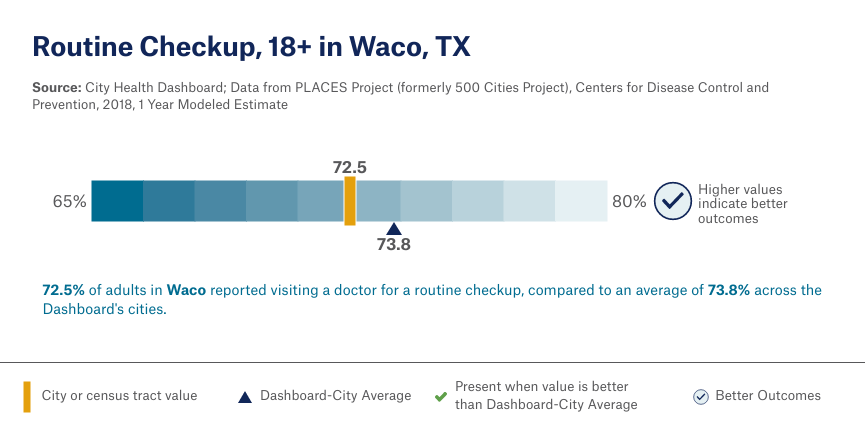
When broken down by ZIP code and census tract, the problem becomes more glaring.
- 76701, Track #1: only 66.6% of adults had a routine checkup in the past year
- 76705, Track #33: only 65.9% of adults had a routine checkup in the past year
- 76706, Track #2: only 66.5% of adults had a routine checkup in the past year
- 76798, Track #3: only 66.3% of adults had a routine checkup in the past year
Participants in “Christmas on Memorial” will have access to the following:
- Groceries for their families;
- Health screening from Ascension;
- Behavioral health screening from Heart of Texas Region MHMR,
- A COVID vaccine;
- Buy and wrap Christmas presents for kids at a reduced cost;
- Be entered into a drawing for prizes, including kids’ bicycles;
- Apply for health insurance and/or health benefits;
- Talk to a number of health agencies and providers about healthcare options and benefits; and
- A visit with Santa or play time in an on-site bounce house, along with an assortment of other kids’ activities.
The event is being held to help our community connect with healthcare resources. This event was planned by the Access to Healthcare Working Group, which is co-chaired by Heather Travers of McLennan County Indigent Healthcare and Deneece Ferrales of Prosper Waco.
For more information about this event or to sign up for a table at the event, please contact [email protected] or [email protected]. Flyers are available for distribution.
If you would like more information about the work of the Access to Healthcare Working Group, you please contact co-chairs Heather Travers or me at the emails above.
Deneece Ferrales, Ph.D., is director of health initiatives with Prosper Waco.
The Act Locally Waco blog publishes posts with a connection to these aspirations for Waco. If you are interested in writing for the Act Locally Waco Blog, please email Ferrell Foster.
By Suzii Paynter March
There is no avoiding a crisis; chaos can come in all sizes. Everyday good people are faced with unimaginable bad luck, disasters, break downs, unexplainable confusion, desperation and violence. But none of these should be the last word on anyone’s life.
The worst thing that happens to you should not define you. But all too often, a crisis and the chaos it brings, changes everything and every relationship in sight. What if every crisis ended up on your doorstep?
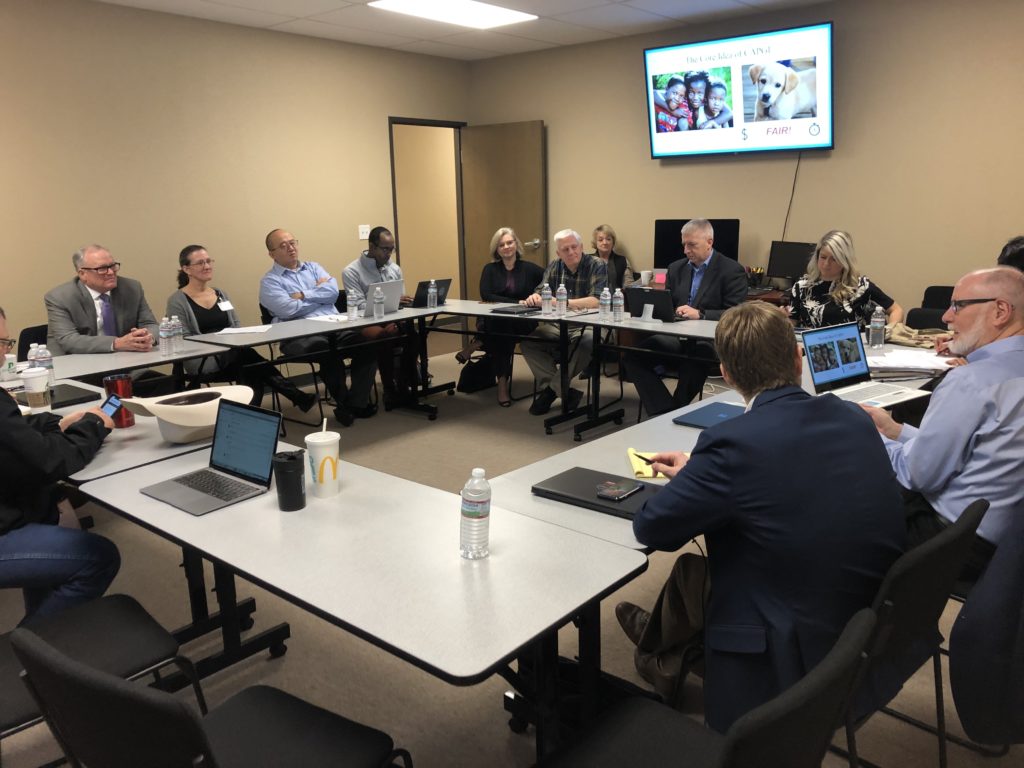
Waco needs a crisis hub. A crisis hub is a place that is a combined resource center that can help streamline decisions, bolster support, provide a smooth hand off, and share the load to help people in crisis avoid the chaos that can destroy themselves and their families.
Right now, mental health professionals, medical personnel, City of Waco, and McLennan County leaders are working toward building the right team to respond to overwhelming crises and build a place for Waco to have a crisis hub. Responding to the kinds of personal crises that can bring harm to self and others and finding the way out of chaos takes a team.
Through the leadership of the Prosper Waco working group, the Behavioral Health Leadership Team, the Board of MHMR, and the advice of other communities who have also tackled this problem, Waco is retooling to minimize the chaos that wreaks havoc on friends, family, and neighbors. Bringing existing resources together matters, and it multiplies the effectiveness of intervention.
The number of people in crisis and the intensity of the crises grow month by month. One frustrated man in crisis described Waco as a pinball machine – “I know I need help, but all I can do is bounce around town or be drunk or violent. Can’t somebody catch me on the bounce. I know I need help?”
Teams in a crisis hub can function together to avoid duplication of efforts; they can minimize missed opportunities and promote persistence; they can support each other in the very hard work of helping people climb out of chaos and find hope. A crisis hub team can find steps toward solutions JUST because they are together and can bring many talents to bear all at once. Concentrating services helps the person in crisis and it helps sustain the strength of the professionals working together, too.
When is the sum greater than its parts? When a small group of caring, talented people step in together to tackle chaos and come out the other side with hope. I would not know what to do if the crisis were on my doorstep, but I can be part of the solution by supporting the team that is building the Waco Crisis Hub.

Suzii Paynter March is chief executive officer of Prosper Waco.
The Act Locally Waco blog publishes posts with a connection to these aspirations for Waco. If you are interested in writing for the Act Locally Waco Blog, please email Ferrell Foster at [email protected].
By Suzii Paynter March
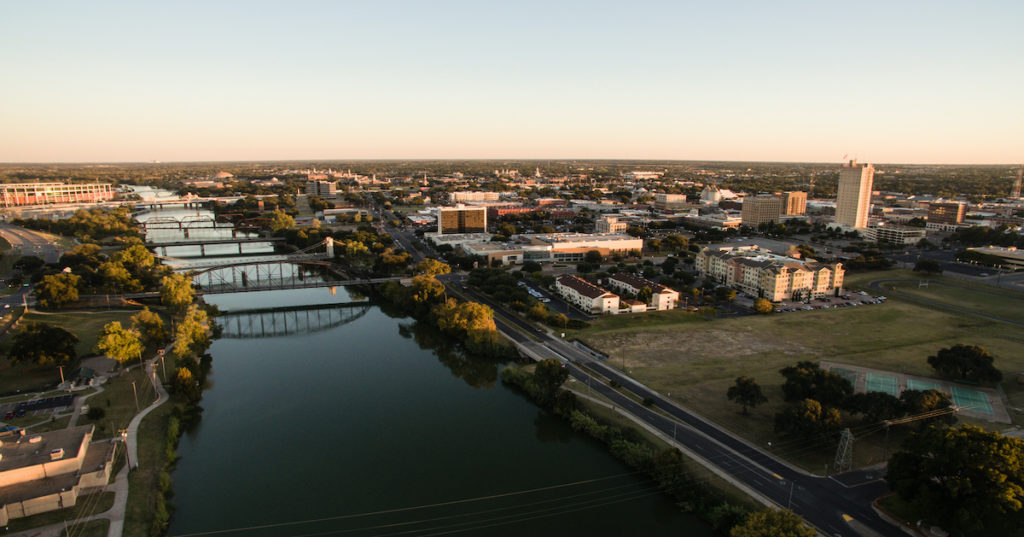
Once upon a time a city on the Brazos decided to settle into a system of confusing and expensive organizations and barriers that made it hard for citizens to get health care. It worked.
In Brazos Town, more than 4,500 people now visit the two hospital emergency rooms every year — the most expensive and least consistent care in town. Better yet, more than 1,000 people visit the emergency rooms 4-12 times a year, and these are not the true frequent flyers.
In Brazos Town, if you have a seriously disabled child born and cannot cover the astronomical cost of their essential care, you can wait six years for your child to be eligible for state insurance services.
The base for most insured folks are employers. Some employers offer health insurance — at least to their full-time employees. Other employers, however, thought insurance was getting too costly for their budget, so they started hiring more and more part-time workers who are not eligible for coverage. The employer saves money, the health of the community suffers.
“We added 100 new jobs!” They cheer. “So great for Brazos Town!”
Others remind us that 50 full-time employees lost health insurance for themselves and their families.
So more people go without Insurance even while working. If you do not have a good full-time job and an employer with health insurance for you, you can apply for lower cost state health insurance, but to do so you will have to quit your job, lower your income to less than $400 a month, sell your car (no assets allowed for eligibility) and re-apply every six months. Of course, this state insurance is available only if you are a child, disabled, the mother of an infant, or pregnant. Single? Working for $400 per month? Without kids? Nevermind.
Caring for the record number of uninsured people becomes a problem. A program is started in Brazos Town to train 12 doctors a year. It is as if someone said, “Let’s put the burden of caring for all these folks on these trainees!“
Three classes at a time were in town, and this team of doctors in training and other training colleagues set up clinics where they practice for their training and care for Brazos Town folks for some services. There are waiting lists for services and referrals to specialists from these clinics, and some specialists are available only for those with insurance from employers or every six months from the state.
The hospitals, the City, and the County budgets all chip in to help pay for the clinics and the the doctors in training, but these clinics that started out for training are busting at the seams and costs are growing every month. Fundraisers cannot raise enough money. And the City, County and hospitals have their own health-related costs, too, like emergency services, the county health office, epidemiologists for deadly pandemics, and programs for special populations.
Last year, Brazos Town endured the pandemic like every place else. Some predictable outcomes showed that people worked together and pulled together, but the toolbox for services to everyone was exhausted, as were the health care professionals trying to serve Brazos Town.
Sometimes there is wisdom in the right question: One 10-year-old child said to her mother at 8 p.m. after a day in the emergency room, “Mama, can’t we have a simple way to fix my asthma that doesn’t go to the ambulance place?”
“No,“ Mama replied. “This is the Brazos Town way.”
(Brazos Town, all these incidents and more have come across my inbox this year.)

Suzii Paynter March is chief executive officer of Prosper Waco.
The Act Locally Waco blog publishes posts with a connection to these aspirations for Waco. If you are interested in writing for the Act Locally Waco Blog, please email Ferrell Foster at [email protected].
By Vince Erickson
It is official: The Heart of Texas Region MHMR Center has been awarded the distinction of becoming a Texas-Certified Community Behavioral Health Clinic, or CCBHC, by the Texas Health and Human Services Commission.
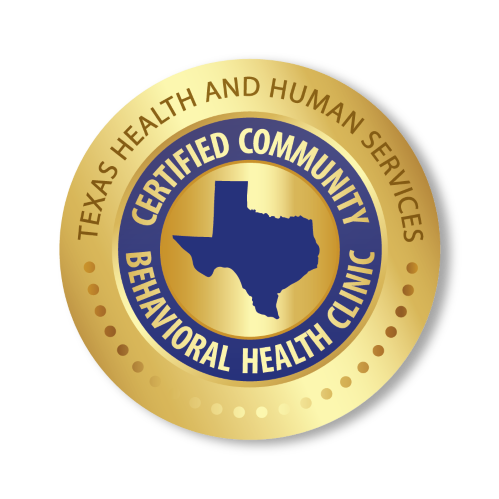
The new certification greatly enhances the center’s commitment to delivering innovative and cutting-edge behavioral health, substance use disorder, and developmental disability services within its six-county region of McLennan, Bosque, Falls, Freestone, Hill, and Limestone counties.
The CCBHC model moves the 52-year-old agency from a performance or hour-based service model to an outcome-based model and incorporating physical healthcare, as well as the following:
- Care coordination across settings and providers across the full spectrum of physical health services, both acute and chronic, and behavioral health care;
- Availability and accessibility of services that are not based on the consumer’s ability to pay or place of residence; and
- Customized care where the consumer is actively involved and has the ability to self-direct services, having maximum choice and control over their services
The Center is the 24th entity in the state to receive Texas-CCHBC certification. The State of Texas has encouraged all 39 Texas Community Centers to achieve CCBHC status before September 2021.
Our staff has worked diligently on this goal since applying for CCBHC status in March 2020. Our Center, as the local Mental Health Authority, will continue to lead the way through the CCBHC model to provide high-quality, coordinated care that is accessible and efficient.
The center was also recently awarded a nearly $4 million grant from the Substance Abuse and Mental Health Services Administration and the U.S. Department of Health and Human Services in anticipation of CCBHC certification. The grant will accelerate mental health and substance use services and staff expansion under the CCBHC model immediately.
The center’s CCBHC certification will be in effect from February 2021 through February 2024.

Vince Erickson directs the Public Information Office & #TexansRecoveringTogether Crisis Counseling Program for the Heart of Texas Region MHMR Center. You may also remember Vince as a former news and sports anchor and sports reporter in stops at KXXV-TV, KCEN-TV and KWTX-TV. He’s happy to call Waco home, along with his wife and two children.
The Act Locally Waco blog publishes posts with a connection to these aspirations for Waco. If you are interested in writing for the Act Locally Waco Blog, please email Ferrell Foster at [email protected].
By Tiffiney Gray
One year ago, on Sunday, March 8, 2020, I attended church service with my family, drove to MILO to have brunch, then went to Michael’s to pick up some crafting materials. With two little ones (then 5 months and 3 years old) along for the ride, it was no small decision to add two more stops to our outing. Looking back, I’m glad I braved the possibility of a nursing infant meltdown and toddler restlessness to see smiling faces at church, enjoy brunch, and pick up supplies. Little did I know that day would be my last in-person church service, Sunday brunch, and in-store shopping experience for a very long time.

In two weeks, our community will mark one year since our local shelter-in-place order. One year of hunkering down, wearing masks, travel restrictions, canceled parties, rescheduled family events, and modified birthday celebrations. For many of our neighbors, this past year has brought on much more than mere social inconveniences, but instead has meant financial, occupational, and family hardships like never before.
All of this change, not to mention the duration, can take a toll on mental, emotional, and physical health. I’ve been checking in with colleagues, family, friends — and myself — to see how we’re doing. How we’re trudging along. It seems like many of us need a little more help, more support, and more grace these days. And our recent deep freeze hasn’t made this marathon of calamity any better. For many of our Waco neighbors February’s icy, snowy storm dealt yet another blow to a long haul of health concerns, economic uncertainty, lost income, social isolation, and all kinds of distress. Being in the dark, being in the cold, wanting for running water, and watching your groceries (bought with hard-earned wages) spoil right before your eyes has a way of layering on the pressure and testing our ability to cope.
These pressures can accumulate, and experts are warning of an impending mental health epidemic that could sweep across the country, but especially impact communities of color.
Last spring, we witnessed the disproportionate physical health impacts of COVID-19 in Black and Hispanic communities brought on by historical social and economic inequities. Changes in the way families interact, commune, socialize, celebrate, and mourn have aggravated existing traumas, brought on separation distress, grief issues, anxiety, and a host of other mental health challenges. But what can we do reduce the impact of this looming storm?
Check on your neighbors, family, and friends.
Use every safe communications channel at your disposal, including digital and traditional ways of engaging. Think Zoom, FaceTime, Google Meet, What’s App video calls, and good old-fashioned land lines. A carside-to-front yard meet up (with masks in tow) is also a family favorite. Maintaining relationships and social connections is more important than ever to keep spirits high.
Tell your health provider what’s going on.
When we have back pain, we don’t hesitate to see a spine doctor or a physical therapist. The same should be true of emotional pain. Connect with a mental health provider or schedule an appointment with your family doctor to ask about more specialized support from a mental health practitioner, therapist, or counselor.
Talk with a trusted advisor.
Whether it’s a pastor, a community elder, a professional mentor, or in my case another mom of toddlers, extend an invitation to pray together, to share a devotion through FaceTime, or to have virtual coffee to talk and catch up. My hope is that the outpouring of grace, prayers, and encouragement flows both ways.
Call for immediate help.
The Heart of Texas Region MHMR is home to emergency counseling services for anyone impacted by the pandemic. MHMR is a huge local resource with a host of counseling and therapeutic services in addition to social support and wellness resources. Whether it’s a crisis or you simply need to talk to someone, MHMR is available to help.
MHMR Crisis Line 866-752-3451
MHMR COVID Help Line 866-576-1101
Advocate for better coverage of mental health care.
I’ve been on the search for mental health support and therapy for my family and me for several months. With my own health consumer hat on, navigating insurance coverage and which providers even accept my (really good) insurance, or accept insurance at all, has been both surprising and disappointing. We need collective advocacy to demand better. Better payor coverage of mental health services and better acceptance of insurance by mental health providers. There is undoubtedly a need – a market – for mental health care, and marketplace vendors (practitioners and payors) should better respond to consumer needs.
A year ago, I wrote a post about minding your mental health during the COVID-19 pandemic. It’s hard to believe that we’re still riding out this storm 11 months later and my hunch is that this ride of ours isn’t over yet. Our resilience has been tested, tried, and tested again, but we’re in this together to support our neighbors when they need us and to lean on our neighbors when we need them.
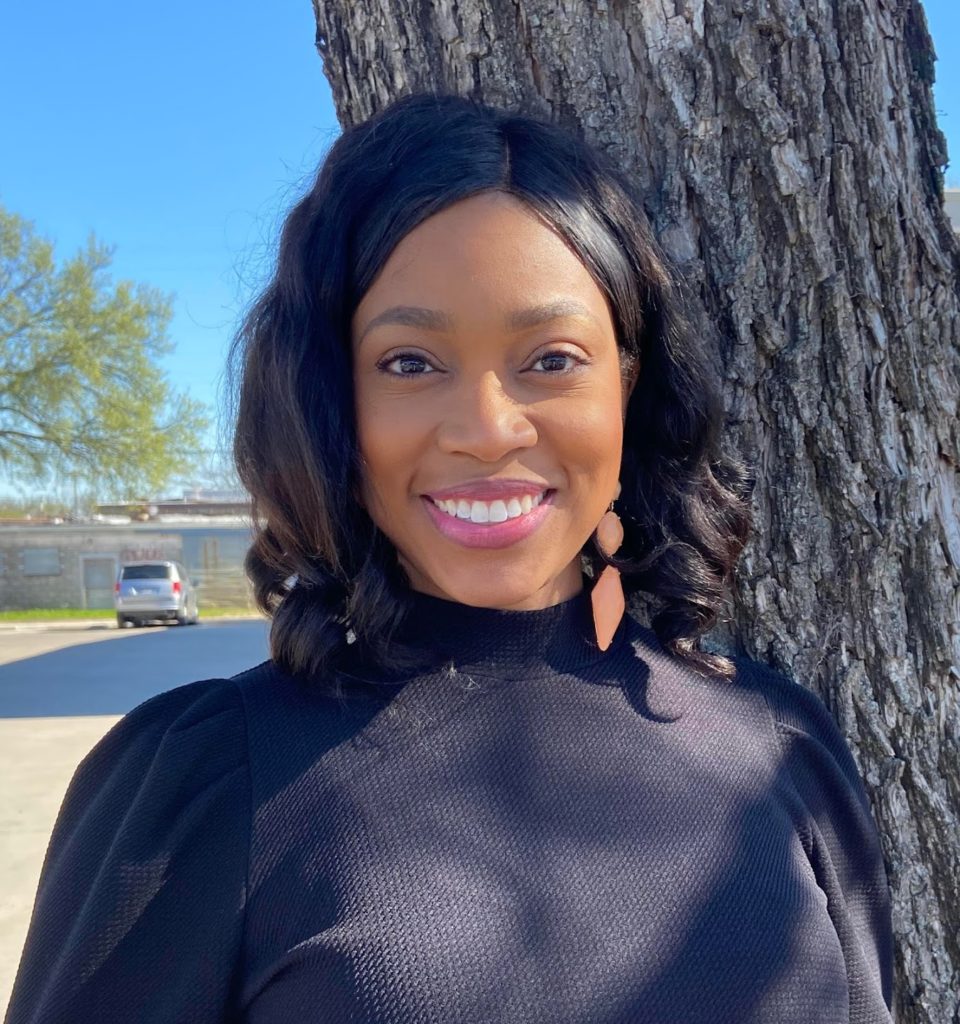
Tiffiney Gray is senior content specialist for health with Prosper Waco.
The Act Locally Waco blog publishes posts with a connection to these aspirations for Waco. If you are interested in writing for the Act Locally Waco Blog, please email Ferrell Foster at [email protected].
By Meg Wallace
The first appearance of a mental illness can be terrifying, whether you are the one experiencing it or someone you care about is falling ill. Your mind is muddled, a crisis is gathering steam, and you know you need help — but where to begin? Who will help you find your way?
Chronic depression or anxiety can be isolating. You drop out of your usual activities because it hurts too much to start your day, or you fear you’ll have a panic attack in public. So you stop getting together with friends, and you miss one more Sunday at church. You retreat gradually, and no one notices you’re gone. You’re alone.
Amberley Collaborative has created a continuing education course called Mental Health in Congregations, offered through McLennan Community College Continuing Education beginning Tuesday, Jan 19.
Of course, professional help can make an enormous difference in your life. Medication can reduce your symptoms, and a therapist can help you sort things out. But living with a mental illness can be a day-to-day struggle, or bouts of worsening symptoms may disrupt a period of recovery. It can be a hard road, so hard to walk alone.
In many communities of faith, people commit to walking together. But walking with someone struggling with chronic depression or anxiety can challenge our empathy. We want our friend to snap out of their distress, and when they don’t, we’re unsure how to share time with them. A youth attempts suicide, or a member has a manic episode. They are receiving professional help, and we know we shouldn’t leave them to walk alone between therapy appointments. But the situation feels scary and confusing. What do we do?
Decades of research indicates that people in distress often turn to faith communities for support. When the congregation’s response is healthy, it can be a key aspect of recovery for people living with mental illness. But when the response is negative or unhelpful, congregations can do harm. Continuing education can help faith communities respond helpfully — accompanying people living with mental illness and supporting their recovery.
Amberley Collaborative is a new Waco nonprofit that aims to strengthen community support for people with disabilities and other challenges. In our Mental Health in Congregations initiative, we started by talking to leaders at 23 Waco-area congregations to learn how they’re walking alongside people who are struggling and how they’re helping them access professional services. We also wanted to know how these leaders take care of themselves while they care for others, and we asked what kind of support Amberley Collaborative could provide.
The leaders told us they want help figuring out how to organize care in their congregations so needs come to light and people are supported. They need to know more about mental health services and how to access them. They want to learn about various types of mental health challenges and what kinds of responses are helpful, and they want training on what to do in a crisis. They talked about needing to care well for themselves as they care for others. They want to increase the caring capacity of their faith communities by equipping Sunday school teachers and small group leaders to foster wellness in the groups they lead.
With guidance from these faith leaders, Amberley Collaborative has created a continuing education course called Mental Health in Congregations, offered through McLennan Community College Continuing Education beginning Tuesday, Jan 19. The presenters are mental health professionals, pastors, and people with lived experience of mental illness, and each of the six 90-minute sessions is interactive, with plenty of time for dialogue. Our goal is not just to deliver information, but to create a community of care that will last long after the course is over, and to connect participants with mental health professionals who will continue to support their good work in the future.
Please join us. You can learn more about the class on the Amberley Collaborative website. To register go to the MCC website.

Meg Wallace, MA, LMSW, is a 2018 graduate of Baylor’s Garland School of Social Work. She founded the nonprofit Amberley Collaborative to cultivate the kind of community care her own family has needed while grappling with disability. She continues to work as a freelance editor and book indexer while developing the nonprofit.
The Act Locally Waco blog publishes posts with a connection to these aspirations for Waco. If you are interested in writing for the Act Locally Waco Blog, please email Ferrell Foster at [email protected].
By Jamie Willmann
In a time where much dissension exists, where the world is hurting out of a lack of love and community, and where isolation has hindered social interaction, we can find a sense of connection in the most unexpected places.
There is benefit in meeting someone who is experiencing the same trials or pain we are going through. Though we may all come from differing backgrounds, we can find unity in this COVID-19 disaster by digging a little under the surface. Underneath, we still find persons who have emotions and feelings that are directly affected by the state of the world.
Finding commonality in trials breeds possible connection. When we relate to one another, sympathy is present. It creates a sense of safety knowing that someone knows what we are experiencing. We may not feel as lonely in our trials anymore, and it creates an internal sense of validation.
People across the world are experiencing an influx of changes to their normal routines. By nature, we are adaptable to new environments and changes, but the pandemic is entirely on a new scale. It is bringing new situations that we never thought possible.
We are not designed to be isolated from others. We crave community and the presence of others. As we now adjust to something that goes against our nature, problems arise. Anxiety increases, and irritability becomes present.
In the moments when you feel COVID-19 has shattered your daily life, imagine that you are standing at the edge of potential for growth. Although you may feel anxious, depressed, or fearful, you also share in the fact that there is growth that can come out of this. You, however, have to choose that path.
The first step is acknowledging you need help and then accepting a helping hand from your neighbor.
There is a conception of mental health that needs to be stopped. Many believe they must appear as if they have it all together, which then inhibits them from receiving the help that could change the trajectory of their daily lives. We must break down these expectations to allow others in to help us.
Whether you are facing job loss, money problems, sickness, or family loss, know that you are not alone. Nowhere does it say that you have to do this on your own.
Our Crisis Counseling Program (called Texans Recovering Together) is made possible by a dedicated group of professional counselors.
— We are a team of people devoted to providing accessible, caring, and responsive services.
— We are here to listen to you, to build you up, and to provide you with what you need to press on.
— We are a network of community support that is here by your side.
By empowering our communities and taking a strength-based approach, our services provide empowerment to the community and resilience to combat the fear. We believe that we are better together, and we want to help you through these hard times.
Call us at toll-free at (866) 576-1101 to speak with a counselor, or request counseling here.
We are #TexansRecoveringTogether. We are here to help you recover.
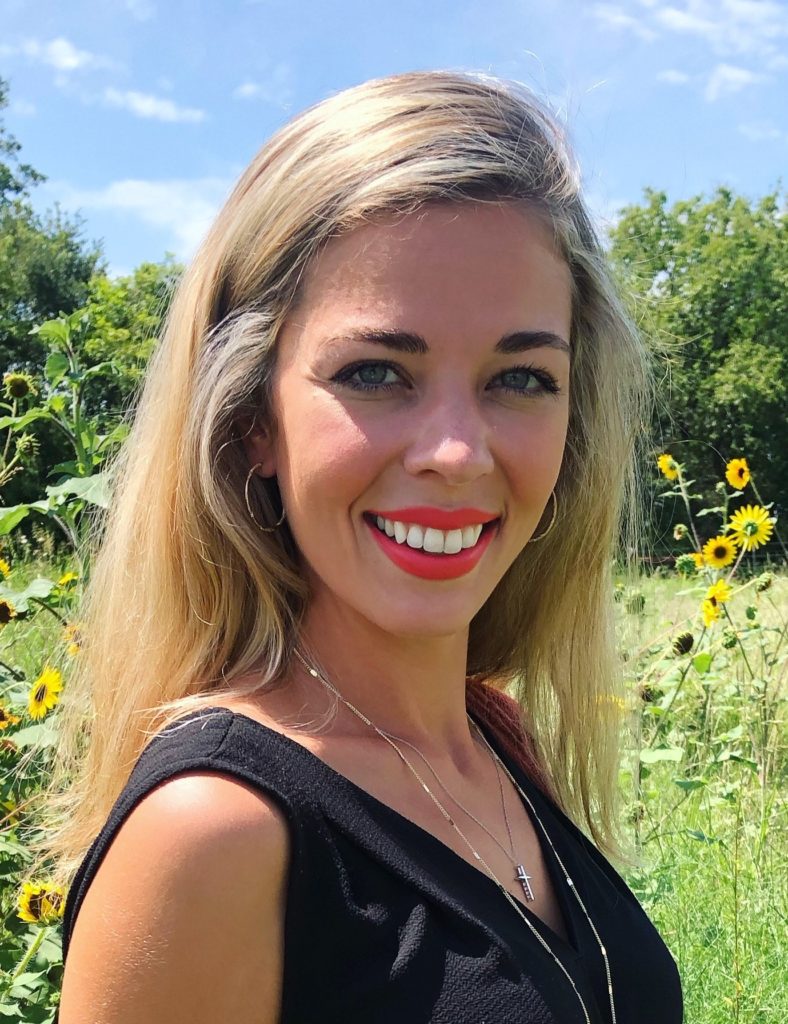
Jamie Willmann was raised in a Christian home and was taught to serve and love others at an early age. She has a passion for making people smile and brightening people’s days. Jamie came from Wisconsin three years ago to attend Baylor, where she graduated with a degree in international studies. She now devotes her free time to self-care, exercising, relaxing in nature, and fellowship with friends.
The Act Locally Waco blog publishes posts with a connection to these aspirations for Waco. If you are interested in writing for the Act Locally Waco Blog, please email [email protected]for more information.
City of Waco
Strategic Communications Workgroup
MEDIA RELEASE
Ten Waco organizations are partnering with Heart of Texas MHMR to promote free, confidential mental health services available to all Central Texans. Mental health needs have risen with COVID-19, and these organizations want community members to know there is help available at no cost to the recipient.
Heart of Texas MHMR is participating in the Texans Recovering Together Crisis Counseling Program that provides short-term interventions to help people impacted by COVID-19. The program is available to anyone impacted by COVID-19 and is designed to reduce stress and provide emotional support, as well as connect folks with other agencies that can help in the recovery process. All services are free, anonymous, confidential, and available by virtual visit.
While many organizations are working together to promote a safe, healthy environment during the COVID-19 pandemic, mental health can’t be overlooked. The uncertainty brought on by the virus coupled with job loss, financial burdens, education complexities, and health concerns has led to an increase in stress, anxiety, and other mental health needs across the county. Texans Recovering Together is here to help our community get through this crisis.
The organizations participating in the campaign include McLennan Community College, United Way of Waco-McLennan County, Prosper Waco, Baylor University, Cen-Tex Hispanic Chamber of Commerce, Cen-Tex African American Chamber of Commerce, Greater Waco Chamber of Commerce, Waco Foundation, the City of Waco, and McLennan County.
Each participating organization will promote a series of social media posts on specific days in an effort to widely spread messaging about mental health assistance. The Communications Co-op, co-funded by the City of Waco, Greater Waco Chamber of Commerce, and Waco Foundation, will provide grants to each organization for social media promotion of the mental health campaign.
The Strategic Communications Workgroup is one of four committees established by Mayor Kyle Deaver in an effort to provide accurate information to all residents of Waco and McLennan County.
For more information, contact Natalie Kelinske, director of communications & donor services for Waco Foundation, at [email protected] or 254-754-3404.
By Becca Muncy
International Overdose Awareness Day is a global event that takes place on August 31 each year and aims to raise awareness of overdose and reduce the stigma of a drug-related death.
This year’s International Overdose Awareness Day in Waco will be hosted by the VASA (Voices Against Substance Abuse) Community Coalition, a program of VOICE (Viable Options in Community Endeavors), a nonprofit that teaches healthy living skills, including avoiding substance abuse. The event includes:
- Virtual overdose training from Baylor University’s Beauchamp Addiction Recovery Center (one session in the morning form 10-11:45 and one in the afternoon from 3-4:45)
- Food and refreshments from MHMR Substance Abuse Services from 1:00-6:00 PM at 2220 Austin Ave.
- NARCAN overdose reversal kits provided by Central Texas Harm Reduction, available at 2220 Austin Ave.
- T-shirts provided by Texas Harm Reduction Alliance, also available at 2220 Austin Ave.
- Referrals for free telehealth family counseling sessions for families affected by addiction
In addition to the trainings and activities listed above, the I-35 Interstate bridge near McLane stadium will also be lit purple in remembrance of those who have died or been injured by overdose.
In the United States, 67,367 overdose deaths occurred in 2018 (Center for Disease Control) and 70,980 occurred in 2019 (American Hospital Association). And with the COVID-19 pandemic, the rate of drug related deaths have risen by 18%, as people struggle with isolation and those who are in addiction recovery programs are cut off from their support systems (NPR). Now, more than ever, raising awareness of overdose, recognizing the signs of overdose, learning how to prevent or reverse overdose, and grieving with the loved ones of overdose victims is vital.
The main goal of International Overdose Awareness Day is to bring awareness and education to the community. Jessica Wheeler-Macias, Community Coalition Coordinator at VOICE, said it’s important for everyone to know the basics of overdose prevention and reversal, and that breaking down the stigma around discussions of overdose is an important step in spreading that knowledge. Breaking down the stigma includes breaking down the stereotypes of those affected by addiction or overdose. Wheeler-Macias said she wishes everyone knew that the issue of overdose doesn’t discriminate, and that there is no one type of person who will become a victim of overdose, as victims come from all walks of life. “It can be anyone,” Wheeler-Macias said, adding that family members didn’t create the disease of addiction that led to overdose.
Lily Ettinger, Assistant Director of Wellness of Recovery Services at the Beauchamp Addiction Recovery Center, stressed the importance of widespread education as well, saying, “Most people aren’t overdosing in professional settings… it’s in their homes and communities, so it’s important for everyone, not just first responders, to be empowered in knowing how to respond.” She also said something she wished more people knew about overdose prevention is that overdosing often isn’t as extreme as it’s shown in the media and that overdose deaths aren’t always instantaneous. She pointed specifically to opioid overdose, which can happen over the course of several hours, where “there is time available to save someone’s life.”
Ettinger has also seen the effect overdose education and overdose prevention has on overdose survivors, saying, “Their lives today aren’t the same as they were back then, but that’s because they were gifted the chance to survive.”
Wheeler-Macias said she hopes this event will start new conversations about overdose and overdose prevention. She hopes with the training and information provided during the event, people will be able to better identify the signs and signals of overdose and not be afraid to address it when they see it. She said the biggest takeaway she hopes people will have is the simple fact that overdose is a “completely preventable death” and that everyone has the opportunity to save a life with the appropriate training, and that the Waco community has the opportunity to raise “everyday heroes.” And in the end, those everyday heroes, Wheeler-Macias said, “Are what make the world go around… people helping people.”
For those who find themselves hungry to learn and do more after August 31, Ettinger said Waco has “a wealth of resources” including those participating in this event and beyond, like the Central Texas Harm Reduction, Cenikor, The VASA Coalition, the Poison Control Center, Oxford Houses, and the Beauchamp Addiction Recovery Center.
Sign ups for the Beauchamp Addiction Recovery Center’s overdose prevention training sessions are available at https://www.baylor.edu/barc/index.php?id=972252 and more information about International Overdose Awareness Day can be found on the VASA Community Coalition Facebook page.

Becca Muncy is an Act Locally intern from Dallas. She is studying professional writing at Baylor University and is completing her senior year.
The Act Locally Waco blog publishes posts with a connection to these aspirations for Waco. If you are interested in writing for the Act Locally Waco Blog, please email [email protected]for more information.
